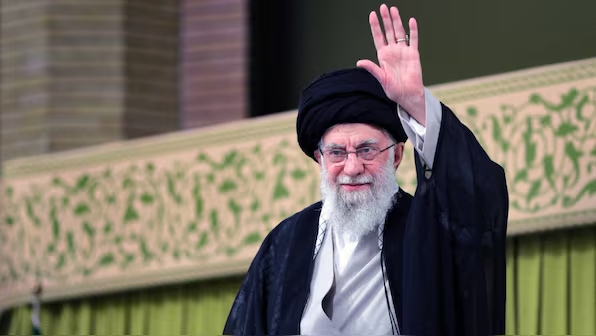DUBAI, United Arab Emirates (AP) — Iran’s Supreme Leader Ayatollah Ali Khamenei warned the United States against launching further attacks in his first public remarks since a ceasefire was declared following 12 days of intense conflict with Israel. Speaking Thursday in a video message aired on Iranian state television, Khamenei claimed Iran had delivered a “slap to America’s face” by targeting a U.S. base in Qatar earlier this week.
This marked the 86-year-old leader’s first appearance since June 19. He appeared visibly fatigued, speaking with a hoarse voice and occasionally stumbling over his words during the 10-minute address filled with stern warnings directed at both the U.S. and Israel.
Khamenei dismissed the effectiveness of the recent U.S. strikes on three Iranian nuclear sites—attacks that President Donald Trump claimed had “completely obliterated” Iran’s nuclear program. “They could not achieve anything significant,” Khamenei said, accusing Trump of exaggerating the damage.
However, the head of the International Atomic Energy Agency, Rafael Grossi, contradicted that claim, stating Thursday that the strikes caused “very, very, very considerable” damage. “I think ‘annihilated’ is too strong, but it suffered enormous damage,” he told French broadcaster RFI. Iran’s Foreign Ministry has also acknowledged significant damage to its nuclear installations.
Khamenei, who had not been seen publicly since reportedly taking shelter following Israel’s June 13 attacks on Iranian nuclear and military sites, said the U.S. entered the conflict only to prevent the collapse of Israel. “It entered the war to save them, yet it gained nothing,” he claimed.
He called Monday’s Iranian missile strike on a U.S. base in Qatar a show of strength, demonstrating Iran’s ability to strike American assets across the region. “This action can be repeated in the future,” he warned. “Should any aggression occur, the enemy will definitely pay a heavy price.”
Since the ceasefire took effect Tuesday, daily life in Iran has begun to resume. Shops in Tehran have reopened, traffic has returned to the streets, and airspace over the eastern half of the country has been partially reopened to domestic and international flights, according to officials.
Iranian authorities report 606 deaths and over 5,300 injuries in the conflict. However, the U.S.-based Human Rights Activists group estimates higher casualties: at least 1,054 killed—including 417 civilians—and 4,476 wounded. Israel reported 28 fatalities and over 1,000 injuries.
During the 12-day conflict, Iran launched more than 550 missiles at Israel, with Israeli defense forces claiming a 90% interception rate. Israel reportedly struck over 720 Iranian military targets and eight nuclear-related sites in response.
Meanwhile, Trump said U.S. and Iranian officials may meet next week for renewed diplomatic talks, raising cautious hopes for de-escalation. Iran, however, has yet to confirm any such talks. A planned sixth round of U.S.-Iran negotiations in Oman was canceled following Israel’s initial strikes.
Iran’s parliament, signaling a hardline stance, voted Wednesday to fast-track a bill that would suspend cooperation with the IAEA, casting doubt on future transparency around its nuclear program.



